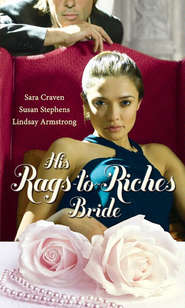По всем вопросам обращайтесь на: info@litportal.ru
(©) 2003-2024.
✖
Desperate Measures
Автор
Год написания книги
2018
Настройки чтения
Размер шрифта
Высота строк
Поля
Anyway, Monica had fallen on her feet, firstly with an over-generous divorce settlement, which she seemed conveniently to have forgotten, and later with Lennox Underhay, who had always admired her chic blonde prettiness.
But, at first, everything had worked out for Gavin too. Instead of starving in some foreign gutter as Monica had confidently predicted, he had found a ready and high-paying market for his landscapes, and he and Philippa had enjoyed several heady years of travelling round the Dordogne and Provence together as he worked. Gavin Roscoe, as one critic had said, had a unique ability to express in paint the intensity of heat and shade the southern regions of France could produce.
It had seemed as though it would never end, Philippa thought, biting her lower lip until she could taste blood. Perhaps it was as well that neither of them had realised how little time there really was.
I’m not going to think like that, she castigated herself. I’m going to get the money, somehow, and Daddy’s going to America for this treatment.
But how could she get rich quick? she wondered, leaning her aching forehead against the train window. There were so few avenues left unexplored.
I’ve tried all the conventional ways, she thought. Maybe I should consider more desperate measures. High-class call-girls earn a lot, it’s said, and it’s tax-free. She turned her head a little, studying her reflection in the glass. Only a supreme optimist would think the punters were clamouring for skinny nineteen-year-olds with small breasts, straight hair and very little experience.
Let’s face it, she thought. No experience at all.
She was thankful her father had no idea what she was contemplating, even in joke. He thought she was trying to sell the last painting he’d produced before the muscle wastage became too severe.
But even that had been hopeless. The man at the Orbis Gallery had been very kind, very understanding, but the painting had been almost unrecognisable as Gavin Roscoe’s work. It had been unrealistic to think they might take it.
I’m going to need a miracle, Philippa thought.
She was stretched on the bed in her tiny single room a few hours later, trying to interest herself in a detective story she’d bought at the station, when the phone rang.
It was probably reception checking when she was leaving, she thought as she lifted the receiver.
Instead, her stepmother’s voice said curtly, ‘Can you come over to the house right away? There’s something I want to discuss with you.’
‘Something about the money.’ Philippa’s heart skipped a beat. ‘You mean you’ve thought of a way?’
‘Possibly.’
‘But that’s wonderful! What is it?’
‘It’s not something I care to talk about on the telephone,’ Monica returned frostily. ‘As for it being wonderful—well, that remains to be seen.’ She paused. ‘It would help if you came looking reasonably presentable.’ She replaced the receiver.
Presentable, Philippa thought with bewilderment, reviewing in her mind the details of the scanty wardrobe she’d brought with her. There was little there that would fall within Monica’s stringent requirements.
She compromised with clean jeans, and a cream full-sleeved shirt, brushing her brown hair until it shone, then fastening it behind her ears with two tortoiseshell combs.
She took a cab to Lowden Square. She found Monica alone, standing by the marble fireplace in the drawing-room, brandy glass in hand. She turned as Philippa was shown in, and her lips thinned. ‘My God, I said presentable, and you turn up looking like some art student!’
‘Which is exactly what I am,’ Philippa returned, lifting her chin. ‘Anyway, do my clothes really matter so much? I’m not going to be offered a modelling contract, surely?’
‘There’s no guarantee you’re going to be offered anything at all,’ Monica said with a snap. ‘When he sees you, he may well have second thoughts, and who can blame him?’
‘He?’ Philippa frowned. ‘Just who is he?’
‘He is Alain de Courcy,’ Monica said shortly. ‘As I think I mentioned, he’s the head of De Courcy International, and he has a proposition to put to you. If you’re as desperate for money as you claim to be, you’ll listen to him, although I find the whole thing totally incredible—unthinkable.’ She drank some of her brandy. ‘He’s waiting for you in the library, so I suggest you don’t keep him waiting any longer.’
Philippa walked the few yards to the library, her mind whirling. She had rarely seen her stepmother so on edge—not since the time she’d first learned Gavin’s plans for the future. Obviously the important dinner party hadn’t gone precisely to plan.
She’d heard of de Courcy International, of course. Who hadn’t? But what on earth could anyone connected with such a vast and influential organisation want with someone as insignificant as herself? As Monica had indicated, it made no sense.
She paused outside the library door, wondering whether she should knock, then, deciding against it, turned the handle and walked into the room.
All the lights were on, and Philippa paused, blinking a little after the relative dimness of the hall. Then, as her eyes grew accustomed to the glare, and she saw him, she stopped dead, completely taken aback.
The head of an important company like De Courcy should be an older man, she found herself thinking dazedly. Someone heavyweight, middle-aged and mature—like Lennox Underhay, for instance.
But this man was young, and she realised, incredibly attractive, as her artist’s eye took in the underlying strength of his superb bone-structure which would last long after his surface looks were gone. The thick dark hair, waving back from his forehead, the green eyes with their almost feminine sweep of lashes, the firm-lipped mouth and deeply cleft chin—all these were only a bonus.
He was tall too, his broad-shouldered, lean-hipped body perfectly set off by the formal elegance of his evening clothes.
He looked surprised as well, the dark brows snapping together autocratically above his high-bridged nose as he looked her unhurriedly up and down.
Philippa’s hands felt damp suddenly, and she wiped her palms on her jeans. The movement broke the silent stillness which seemed to enclose them, and he moved too, suddenly, abruptly, as if he was angry about something.
But when he spoke, his cool, faintly accented voice was only meditative. ‘So—you are Philippa.’
‘Yes.’ She swallowed, still staring at him as if mesmerised, aware that her throat was dry, and that her pulses were doing disturbing things. ‘And you are—Monsieur de Courcy.’
He smiled briefly and sardonically. ‘Oh, I think, in the circumstances, we should be less formal, perhaps. My name is Alain.’
‘What circumstances?’ Suddenly she was afraid. I didn’t mean what I said about being a high-class callgirl, she placated some unknown but clearly humourless deity. ‘I—I don’t understand, monsieur.’
‘You have not been told?’ The green eyes met hers, held them. ‘Then the task—the privilege is mine, it seems. You and I, mademoiselle, are destined to be married.’
For a moment, Philippa’s mind seemed numb. She couldn’t move or speak—or even think coherently. Incredible, Monica had said. But it was worse than that. It was completely insane. The word kept running through her brain. The head of De Courcy International had gone stark raving mad, and they were the only ones who knew.
‘You had better sit,’ Alain de Courcy added curtly. ‘Before you fall down.’ His gaze raked her again, taking in the cling of the tight-fitting jeans to her slender hips, the slight swell of her breasts under the thin shirt. The frown returned. ‘How old are you, mademoiselle?’
‘I’m—nearly twenty.’ She ran her tongue round her dry lips. ‘Did you really say—married?’
He nodded unsmilingly.
She swallowed. ‘But I’ve never seen you before in my life—never even knew you existed until tonight.’
‘Nor I you,’ he said with a slight shrug. ‘But that need not be an obstacle.’ He fetched a high-backed chair and set it for her, then placed another one opposite for himself. ‘Before you reject me out of hand as a dangerous lunatic, allow me to explain. I need to be married, mademoiselle, and urgently too. Before I came to dinner tonight, I was seriously contemplating advertising for a wife in some newspaper.’
‘This must be some tasteless joke,’ Philippa said thickly. ‘I shall never forgive Monica—or Lennox. I suppose it was because I made a nuisance of myself earlier—said I was desperate for money.’
‘There is no joke,’ Alain de Courcy said quietly. ‘I was distrait at dinner, and they persuaded me to speak of my problems. It was then that your stepmother suggested that your dilemma might provide the solution to mine. This is why you were asked to come here tonight. This is why we are alone together now.’
She took a breath. ‘I—can’t believe this. It’s crazy!’ She sent him a scornful look. ‘Putting an ad in a paper, indeed! You’re the last person in the world who needs to resort to something like that.’
He smiled faintly. ‘Merci du compliment—if that’s what it was. But the truth is, I know very few women of a suitable age and background and even fewer who would allow themselves to be taken in marriage in such a headlong way, without a conventional period of courtship at least—if not vows of undying love and devotion. Anything less, however insincere, would insult them.’
‘You don’t think it would insult me?’ Philippa stiffened.
Alain de Courcy shrugged. ‘From what little I have learned tonight, I don’t think you can afford to be insulted,’ he countered levelly. ‘I understand you need a substantial sum of money to pay for your father’s medical treatment in the United States, and maintain him there in a private clinic. If you marry me, I will make sure sufficient funds are made available for you to use in this way—or as you wish.’ He paused. ‘You need me for your father’s future, mademoiselle. I need you for mine. Do we have a bargain?’













